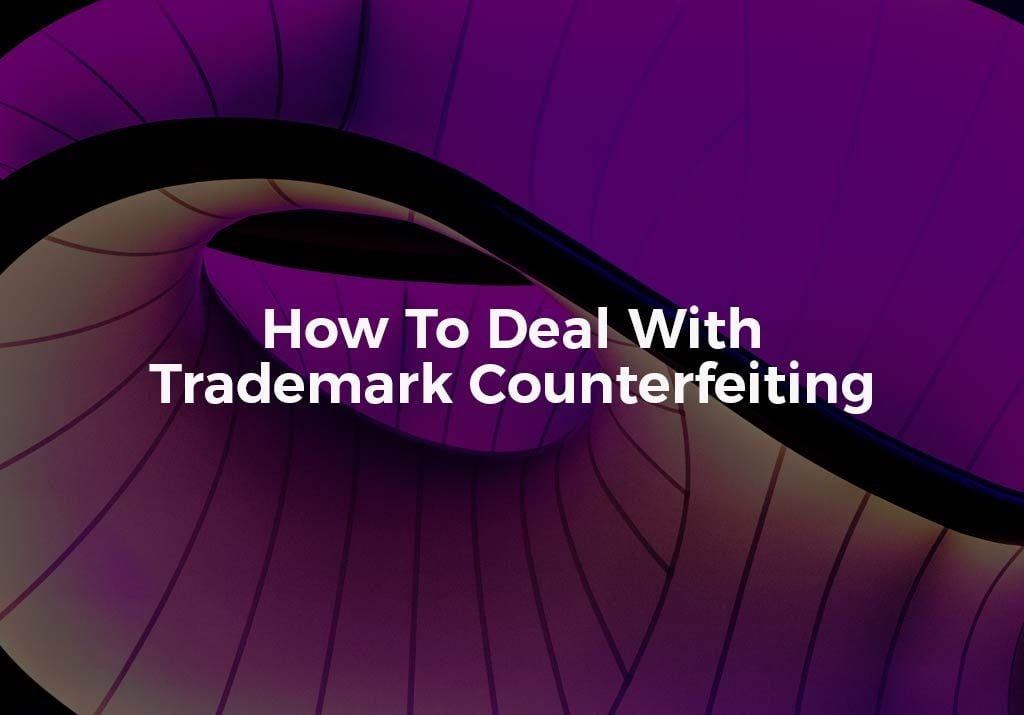There are people out in the world who are looking to make a quick buck off of the intellectual property of others. By stealing, or counterfeiting a trademark, these unscrupulous people can disguise inferior products by slapping a counterfeit copy of a reputable trademark on the good and can pass the good off to consumers as the “real deal.” These shady business dealings involve trademark counterfeiting, and trademark counterfeiting is illegal.
What Is Trademark Counterfeiting?
Trademark counterfeiting is when someone puts a trademark on a product that is meant to look just like a reputable, real trademark. The counterfeit mark is usually so similar to the real mark that it is practically indistinguishable from the real trademark. Consumers who seek the counterfeit mark are easily duped into buying the counterfeit product – the counterfeiter profits, to consumer does not get the product they thought they were purchasing, and the legitimate owner of the real trademark loses out on potential sales and suffers damage to their brand.
Dispute resolution techniques that could typically be relied upon to resolve trademark infringement issues, such as sending a cease and desist letter, negotiating a licensing agreement or filing a lawsuit, don’t always work against trademark counterfeiters. Counterfeiters are fly-by-night, hard to identify individuals who are only out to profit from the intellectual property rights of others. Counterfeiters are often located outside of the United States, which makes them incredibly difficult to track down and bring to justice.
Suing For Trademark Infringement
However, if you are able to identify the counterfeiters, you can sue them for the economic injuries you have suffered due to their counterfeiting activities. In order to seek legal recourse for trademark counterfeiting, you must file a trademark infringement lawsuit and assert infringement due to the counterfeiters’ use of an identical or substantially similar trademark as well as trademark counterfeiting. The court will analyze the likelihood of confusion that the counterfeit trademark presents, and will award (usually enhanced) damages according to the number of counterfeit marks that exist – damages can add up quickly! In certain circumstances, you may even be eligible for treble (triple) damages and attorneys’ fees.
In counterfeit trademark cases, it is fairly common for the court to issue an order that the counterfeit goods be forfeit (seized) or destroyed. The purpose of forfeiture or destruction is to prevent the counterfeit goods from entering the stream of commerce.
Seek Immediate Relief
It is unfortunate that some people are willing to steal the intellectual property of others, and if it happens to one of your trademarks it is important to take action immediately before the situation can get out of control. One of the first things you should do if you are the victim of trademark counterfeiting is to speak to an experienced trademark attorney. Together with your lawyer, you can seek immediate relief, such as a temporary restraining order (TRO), or a preliminary injunction from a court. A TRO or preliminary injunction will put a hold on the infringer’s use of your trademark and will give you time to prepare a lawsuit against the counterfeiters.
Contact One of Our Trademark Lawyers Today
The trademark lawyers at The Rapacke Law Group have helped countless clients with trademark IP matters and we can help you too. Contact us today for a free initial consultation to discuss your particular situation and to see how we can help.




